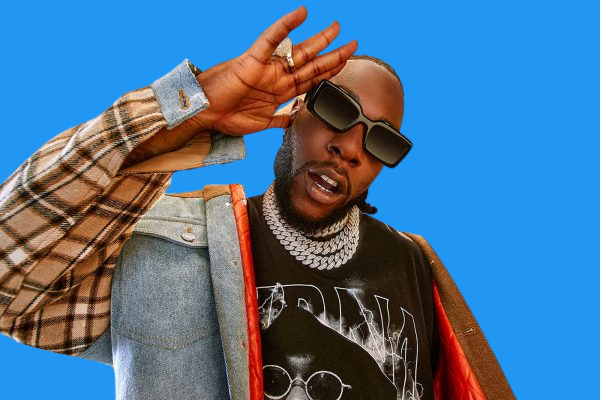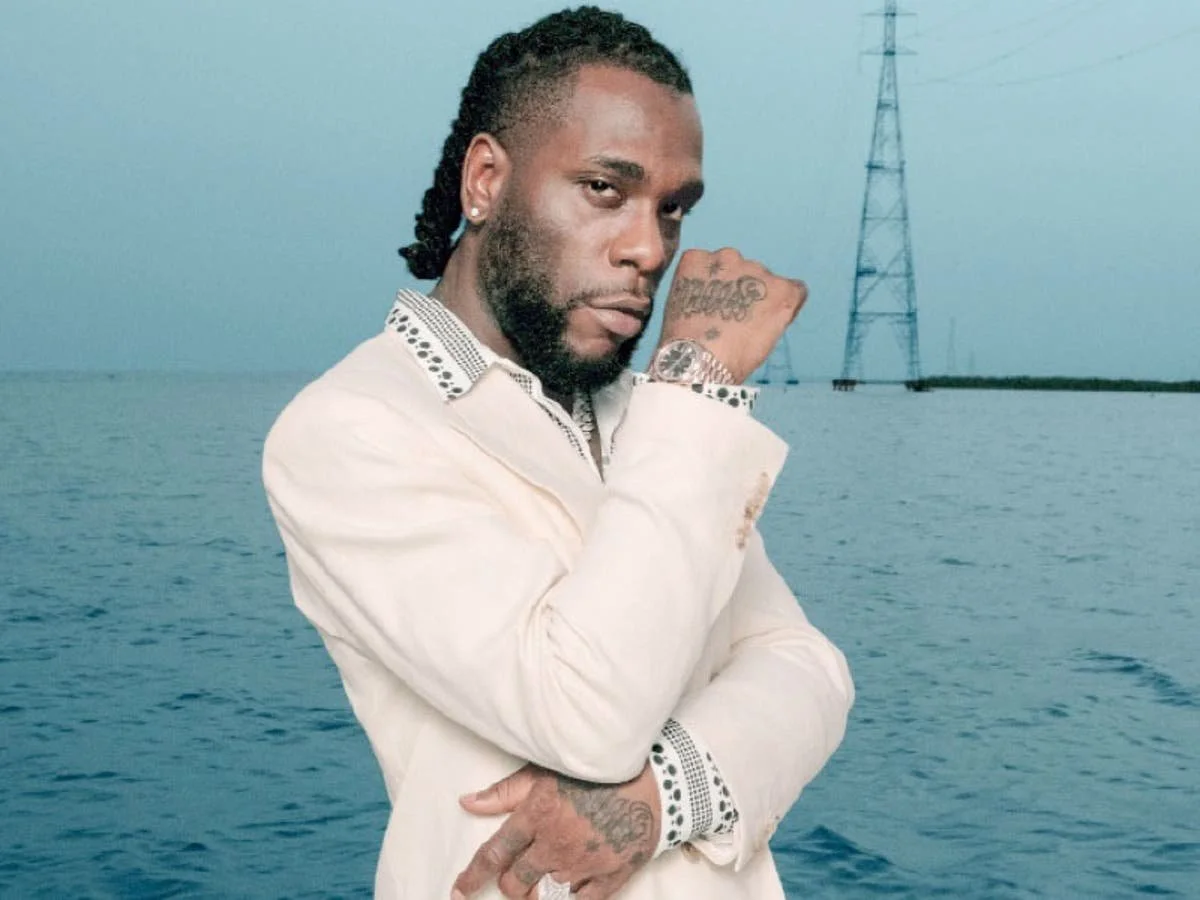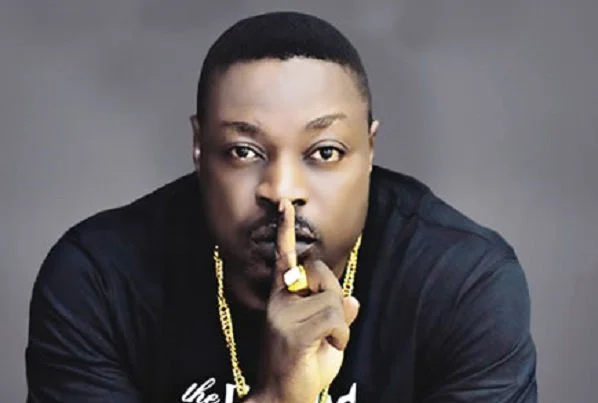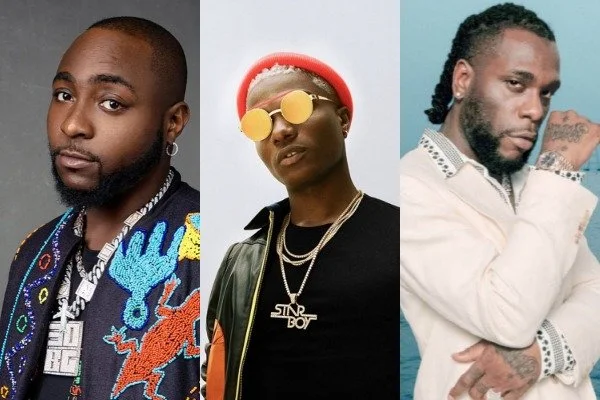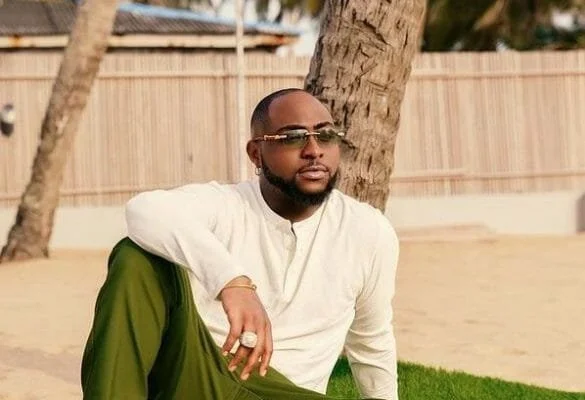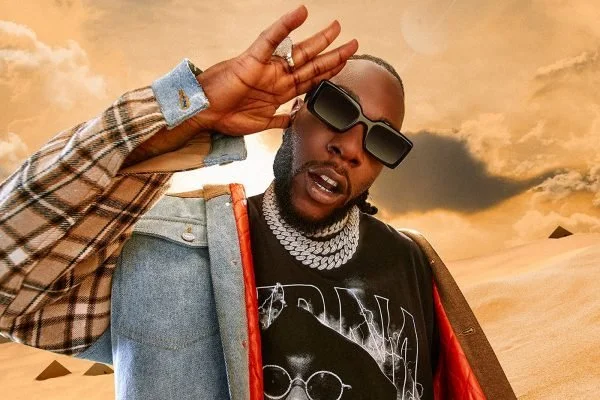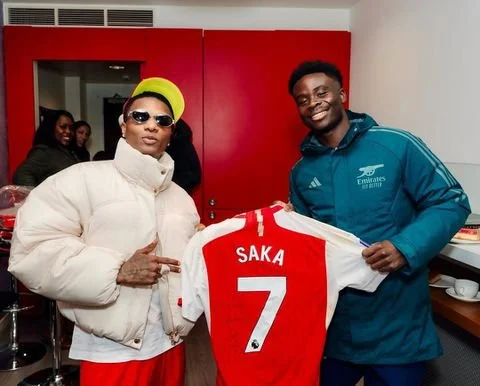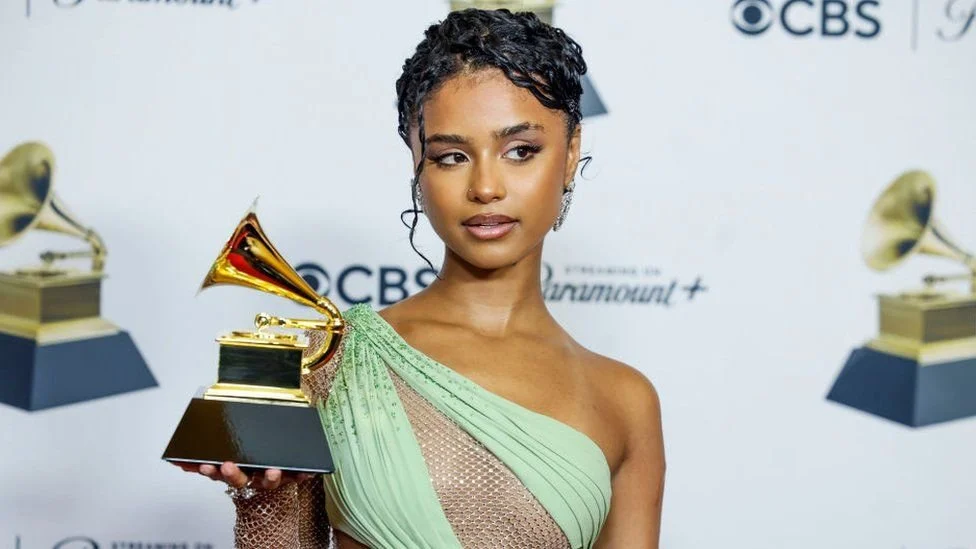Let's focus on addressing things instead of allowing distractions to destroy Nigeria.
It's crazy how certain people like Bobrisky, VDM, Portable, Mohbad's wife, Tonto Dikeh, Daddy Freeze and Nathaniel Bassey have become the centre of attention and discussion. I think the Nigerian government might be doing some things right, too. People have stopped constantly criticizing the government. Should I say that President Tinubu regime is doing something great? Everyone is so consumed that we don't even talk about or leave room for the upcoming generation to learn from or emulate. Everyone's committing online nuisance. Let's focus on things we need to address instead of allowing distractions to destroy Nigeria.
Do you remember the 276 schoolgirls kidnapped in the Chibok community? April 14 marks 10 years since that tragic event. Does anyone know how they are doing now? What about their mental states after such a horrifying incident? Consider the impact on the families and friends of those girls. Though 2014 may seem distant, we're now in 2024, consumed by matters that only harm Nigeria's image worldwide. Did you know that kidnapping of young ones is still on the rise? Instead of being constantly online focusing on things that tarnish the country's image, let's concentrate on initiatives that benefit the youth. So, considering our current trajectory, how do you envision Nigeria in the next 10 years?
Do you remember or even know the name 'Ameyo Stella Adadevoh'? I'm sure some Gen Z would use Google to understand that name. She and some other health workers lost their lives for Nigerians to come online and rant with no purpose other than oppressing others to feel lesser of themselves. In a few months, it will be 10 years since Ebola took so many souls and reshaped countless families. Let's use this year to create awareness and value those heroes who gave us the chance to express ourselves without worry. Even though a Liberian American shouldn't have been allowed on the plane, my point is to remind us of where we're coming from and to focus on something great instead of debating on the wrong issues that won't benefit us in the future.
If you look at today's trends in Nigeria, what do you think will be talked about in the next decade? Many would say not to worry about the future, and in your silent mind, you're right. But what if the future catches up so quickly that you find yourself without purpose or value? It's never too late to start making a positive impact. Figures like Wizkid, Davido, Olamide, Burna Boy, and others are creating a history that most people won't take the time to notice. You might not be as influential as them, but they wouldn't be valued without you and me. So, let's learn to value the right things online, not the BS. If you remember anything significant from 2014 that the country needs to know, add it to this thread.
Adesope: unsung hero who supported Afrobeats long before the genre became popular
Adesope Olajide, better known by his stage name Shopsydoo or Energy Gawd, is a Nigerian media figure who resides in the United Kingdom. He hosts talk shows, events, and podcasts, and appears on radio and television, he is known for his involvement in the growth of Nigeria's music industry.
The Afrobeats Podcast, an afro pop and music podcast, is hosted by him, with a wealth of experience moderating live events, panels, and sports and entertainment radio and television shows, Adesope Olajide is a dynamic broadcaster and entertainment personality.
With more than 15 years of experience in the media, Adesope has been a trailblazer in the UK's promotion of African popular culture, including music, dance, film, and fashion.
Adesope via instagram
He was also one of the first to push Afrobeats, which played on pirate radio stations before becoming popular on mainstream radio and television. This includes serving as the principal anchor for British TV and radio shows, including the live sports programme Sports360 and the Afropop culture entertainment programme Live at Battersea on Vox Africa UK.
Adesope hosts “Afrohits on The Beat” a weekly live music programme on The Beat London 103.6FM playing the hottest records from Africa and interviewing the biggest personalities within the scene.
Since 2014, the radio programme has started broadcasting, Adesope has emerged as one of the most well-known figures in African entertainment in both Europe and Africa during the past ten years. Because of his adaptability as a broadcaster, he has had the opportunity to speak with a wide range of international celebrities, including Anthony Joshua (boxer), Michelle Williams (singer), Davido (singer), Wizkid (singer), Yemi Alade, Yvonne Chaka Chaka, Diamond Platinumz, Amir Khan (boxer), Joe Calzaghe (boxing legend), Cheryl Cole (singer), Thierry Henry (football legend), Dwayne Wade (basketballer), Hakeem Olajuwon (basketball legend), Jay Jay Okocha (football legend), David Haye (boxer), D’Banj and lots lots more.
Adesope via instagram
He is known for being one of the first broadcasters outside of Africa to have interviewed most African pop stars (Afrobeats acts ) such as Wizkid, Davido, Burnaboy etc before the genre was accepted globally.
According to the current, afrobeats has seen a phenomenal rise in popularity both within and outside of Africa. The genre's appeal is global, as evidenced by the fact that its popularity has increased dramatically since 2017 and has reached audiences outside of Africa. This has made afrobeats a truly global musical phenomenon.
Adesope has hyped and MCs almost all the major afrobeats events held in the UK, Europe and even part of Africa.
Let's review Adesope's influence and contributions to the afrobeats scene over time. From the start, he has represented and helped the culture's pioneers. Wizkid has dubbed Adesope the "afrobeats CNN," a visionary torchbearer who has helped the genre flourish. Adesope also supports up-and-coming artists; in fact, few prominent African musicians have been associated with him since their early years.
From promoting up-and-coming artists on Instagram Live to resharing popular artists' posts to spread the word about the genre, these actions serve a variety of purposes.
Adesope via Instagram
Adesope has significantly aided in the acceptance and globalisation of Afrobeats, the most valuable cultural product from Africa.
Adesope is an industry icon who helped bring Afrobeats, Nigeria's most valuable cultural export, to the attention of the globe. He is the unsung hero who supported Afrobeats long before the genre became popular on social media.
He still plays a crucial role in the Afrobeats movement, acting as the catalyst for its continuous rise in popularity throughout the world. Adesope is a great icon of African musical culture who deserves to be widely celebrated and praised for his unrelenting passion and vision.
Do you believe the Nigerian music industry needs to do better?
Nigeria industry
Quoting lyrics from Bnxn's song 'Maximum Damage' featuring Headie One: 'I’m from a place where nobody makes it out without people thinking it's magic.' The Nigerian music industry stands at the top of the world, but all we can see is a mix of OGs, LGs, Cat As, and sub-Cats like Ruger and Bnxn (formerly known as Buju) using social media to cultivate characters that may define history for generations to come. Nobody is perfect, but it's concerning how easily everyone is willing to throw others under the bus once they gain a platform. If you believe the Nigerian music industry needs to do better, then read.
While you listen to the song, consider this: Have you ever wondered about the purpose behind Bnxn and Ruger engaging in online conflicts via tweets and content? Is it to manipulate people's minds before dropping a song together? Are these artists focused more on creating good music or on trashing their colleagues online to generate more clicks for their upcoming songs? Who's really telling the truth? Did they settle their fight behind closed doors? One reason why there will always be Wizkid fans versus Davido fans while Burna Boy's crew awaits the drama? Where is the Nigerian music industry heading? Lastly, is it true that Bnxn and Ruger are about to drop a single? Take a minute to ponder all of this together."
While listening to Khaid's song 'Forever,' ponder this question: What is the purpose behind someone like Jaywon going on a podcast to criticize Burna Boy's response to Edris, merely to validate his own opinion based on personal experience? It seems many of our OGs, LGs, and Cat As forget that social media never forgets. Instead of engaging in podcast sessions, our legends and current top A-list artists should prioritize studio sessions. Everyone, from Charlie Boy to Daddy Showkey, Rude Boy, Jaywon, Edris, and even Seun Kuti lately, seems caught up in proving themselves right. Meanwhile, artists like Bnxn and Ruger are already following in their footsteps, influencing fans. In 2024, it's time for them all to grasp the power of social media, use it to earn money, and leave a positive legacy, rather than perpetuating the drama we see online.
I will use Burna Boy's song 'I Told Them ft GZA' to address every artist who finds themselves leading the country in the music world. Let's take Edris and Burna as examples. There was a time when Edris was the talk of the Nigerian music industry. Those who were around then know his journey, from then till now. Burna, on the other hand, faced a period when the industry seemed to have left him behind. Only a few kept faith in him. So however he chooses to move forward now, we should allow it. But Edris's life should serve as a lesson for him because none of us knows what the future holds. He's not the first; let's not forget it all began with 2baba's 'African Queen' in an American movie, and the likes of Dbanj, Don Jazzy, PSquare, Wizkid, and Davido paved the way. Now it's Burna Boy's time, and Rema is also closing the gap. What are your thoughts on this?"
Eedris Abdulkareem's Recent Controversy Sparks Debate: Does Nigeria's Music Industry Have a Structure?
In recent weeks, Nigerian music veteran Eedris Abdulkareem has found himself at the center of controversy following his outspoken comments about fellow artist Burna Boy. In a podcast session, Abdulkareem criticized Burna Boy and accused him of lacking respect for the pioneers of the Nigerian music industry, claiming that he paved the way for younger artists.
This incident has reignited a long-standing debate about the structure of Nigeria's music industry. Many have questioned whether the industry has a formalized structure in place, and if so, whether it is being effectively utilized.
Over the years, Nigeria's music industry has experienced tremendous growth and success on the global stage. However, concerns have been raised about the lack of a cohesive structure to govern and regulate the industry. Without clear guidelines and enforcement mechanisms, issues such as artist disputes and historical revisionism can arise unchecked.
One key question that arises is: who is responsible for enforcing rules and maintaining the integrity of Nigeria's music industry? While various organizations and associations exist within the industry, such as the Performing Musicians Association of Nigeria (PMAN) and the Copyright Society of Nigeria (COSON), their effectiveness in regulating the industry has been called into question.
Furthermore, there is a concern that without government intervention, the industry may struggle to address these challenges effectively. The Nigerian government has a role to play in supporting and regulating the music industry, but questions remain about its willingness and ability to do so effectively.
In considering government involvement, another important question arises: can the Nigerian people trust their government to act in the best interests of the music industry? Given the history of corruption and inefficiency in Nigeria's government institutions, skepticism is understandable.
In conclusion, Eedris Abdulkareem's recent controversy has brought important issues to the forefront regarding the structure and governance of Nigeria's music industry. While the industry has experienced significant success, there is a pressing need for clearer guidelines, enforcement mechanisms, and government support to ensure its continued growth and sustainability. Without these measures in place, the industry risks being mired in disputes and controversies that could hinder its progress on the global stage
Afrobeat Unity: Burna Boy, Davido, and Wizkid's Impact on Global Music
In recent years, Afrobeat has emerged as a global phenomenon, captivating audiences around the world with its infectious rhythms and vibrant energy. At the forefront of this cultural resurgence stand Burna Boy, Davido, and Wizkid, whose authentic storytelling and musical prowess have propelled them to international acclaim.
Afrobeat isn't just a genre of music; it's a cultural movement that serves as a bridge between continents and generations. Rooted in the rich traditions of African music, Afrobeat speaks to the heart of the African experience while resonating with people from diverse backgrounds.
Burna Boy, Davido, and Wizkid each bring their own unique flavor to the Afrobeat landscape. Burna Boy, with his distinctive sound and unapologetic lyrics, has become a torchbearer of Afrobeat's revival. Davido, with his catchy melodies and infectious charisma, has solidified his status as one of Nigeria's biggest music exports. Wizkid, with his smooth vocals and global appeal, has garnered fans from every corner of the globe.
However, despite their individual successes, Burna Boy, Davido, and Wizkid have had their fair share of disagreements and rivalries. On social media, they've been known to throw subtle jabs at each other, leading many fans to believe that they're not on good terms. But the truth is, these three artists are all still in the business of making great music.
What sets Burna Boy, Davido, and Wizkid apart is their authenticity. They don't shy away from addressing difficult topics or expressing their truth. Instead, they use their platforms to shine a light on issues that matter, from social injustice to political unrest. In doing so, they empower listeners to confront their realities and work towards positive change.
One of the most significant contributions of Burna Boy, Davido, and Wizkid is their ability to unite artists from diverse backgrounds through music. Despite their differences, they've collaborated with each other and other artists, bridging gaps and fostering a sense of unity within the global music community.
As we navigate an increasingly interconnected world, Burna Boy, Davido, and Wizkid's message resonates more than ever. Their journeys from adversity to acclaim serve as a testament to the resilience and creativity of the African spirit. Through their music, they remind us of the power of art to transcend borders and build bridges of understanding.
In conclusion, Afrobeat, fueled by artists like Burna Boy, Davido, and Wizkid, has the potential to spark meaningful cultural exchange and dialogue. By embracing our differences and celebrating our shared humanity, we can continue to harness the transformative power of music to create a more inclusive and harmonious world
Nigerian music that was influenced by Fela Anikulapo Kuti
Some people asked, Did Fela Kuti invent Afrobeat? or Who is the king of Afrobeat after Fela? Let me show you the songs inspired by him.
Music is now judged by numbers and not quality again, as we can see.
In honour of Fela's nomination with other legendary musicians like Tina Turner, Carole King, Dionne Warwick, Rage Against the Machine, Foo Fighters, and others, we offer you a throwback that touches on Fela's history and influence.
Fela, the man and the musical legend, never fails to inspire creativity in Nigerians, regardless of their feelings towards him. His powerful, jazz-inspired sound is indestructible.
Nigerian music that was influenced by Fela Anikulapo Kuti
Burna Boy – Ye
African music legend Burna Boy has never been shy about his admiration and affection for Fela Kuti.
Because of his varied musical background and the fact that Fela's first band manager was his grandfather, Benson Idonije, Burna Boy has always had nothing but love to say about the elder musician. Therefore, it is not shocking to discover allusions to Abami Eda in Burna's song catalogue.
From "Soke" to "Another Story," Burna Boy channels Fela Kuti, capturing his charisma, bravery, and ability to maintain a steady enough beat for the listener's body to move.
Oritse Femi – Double Wahala
Prior to 2013, Oritse Femi had a string of hit songs, such as "Flog Politician" and "Mercies of the Lord," but he would admit that it was "Double Wahala," his rendition of (and ode to) Fela Anikulapo Kuti's "Confusion Break Bone," that helped pull him out of the underground.
Oritse Femi's song "Double Wahala" beautifully captures both everyday life in Nigeria and the desire of every Nigerian woman to live a prosperous old age.
Wizkid – Jaiye Jaiye feat. Femi Kuti
Wizkid needed "Jaiye Jaiye," as it was called in Nigerian, to "ginger" his fans, who had been waiting impatiently for a project since his 2011 breakthrough Superstar.
Alongside his second studio album, Ayo (2014), it was released as the lead single.
Grammy Award winner Femi Kuti, the late singer's eldest son, made an appearance on the lively "Jaiye Jaiye" sample from "Lady."
Skales – Temper (Remix) feat. Burna Boy
Skales' "Temper" song was ok in its original version; it had a catchy groove that the singer overlaid with the catchy phrase "Baby let's have a good timeline."
Ultimately, a secure but successful strategy.
A hearty thanks to Skales for getting Burna Boy involved in the remix. Not only did Burna Boy improve the song, but he also took the wheel and changed its course.
Who brought Amapiano to Nigeria?
These are the tunes that made Amapiano popular in Nigeria.
Different accounts of the musical genres in the Johannesburg slums of Soweto, Alexandra, Vosloorus, and Katlehong have led to a great deal of uncertainty and debate regarding the genre's origins. Still, Katlehong, the township east of Johannesburg, became a hotspot for the genre.
Given its Bacardi-like qualities, some people assert that the genre was born in Pretoria.
It is, however, impossible to pinpoint the origins of the well-known genre due to the differing tales of its creators.
Songs that helped the Amapiano genre gain popularity in Nigeria
Zinoleesky - Kilofeshe
Every place that values music, including the streets, clubs, social media, and private areas, went crazy when Zinoleesky released Kilofeshe.
As Niphkeys had done, it had brought back street music and represented a full localization of the Amapiano sound, where Fuji and Afrobeat elements squared off against the ingredients to create a hit song.
Squander - Falz, Niniola
All or most of the Amapiano musical components, such as the bouncy basslines, light pads, loopy horns, and synth chords, are present in Squander.
After being released on December 4, 2020, the album, which was produced by Yung Willis and swiftly tailored for the Nigerian market, gained momentum in the music industry.
Hallelu – Masterkraft, Bella Shmurda, Zlatan
This was highlighted even more by Niniola's singing and Falz's smooth beat-making.
Masterkraft earlier shown a tendency to incorporate horns into his Amapiano songs with his horn-infused street hop hit, which he collaborated on with Bella Shmurda and Zlatan.
A number of tracks, including Hallelu, which was released on December 11th, 2020, concluded a musically productive year.
High Way – DJ Kaywise ft Phyno
December 2020's music featured a lot of Amapiano hits, one of which was DJ Kaywise's Highway, which featured Phyno.
Highway is an unstoppable song that was mostly performed in Igbo by Phyno. Yung Willis produced the single, utilising Amapiano's powerful basslines, snares, and synthesiser while maintaining the fast-paced style of Nigerian hip hop music.
Ke Star Remix – Focalistic and Davido ft Virgo Deep
Davido, a firm believer in the saying "go big or go home," jumped on the Amapiano bandwagon and remixed his song "Ke Star" with popular South African rapper Focalistic.
After the song became popular and served as a bridge for the adoration and love of Amapiano music between the two countries, Nigerians began to learn Amapiano dance routines with greater verve and flair.
Monalisa – Lojay and Sarz
A popular remix of the song Monalisa by Lojay and Sarz featuring American artist Chris Brown is currently available, proving how popular the original song was.
With its flute-driven, dreamy Amapiano atmosphere, the lead single from Lojay and Sarz's joint EP started out as a sleeper success before blowing up into a blockbuster hit.
Yaba Buluku Remix – DJ Tarico and Burna Boy feat. Preck and Nelson Tivane
A quick geography lesson about the different Swahili-speaking South African countries—including the DJ's own country, Mozambique—is provided by DJ Tarico and Burna Boy's Yaba Buluku remix. Mozambique and Nigeria share musical talent and cultures.
It's noteworthy that the two countries were represented on Yaba Buluku not just by musicians but also by hypemen, who elevated their countries' cultures by applauding the artist in their own tongues.
Wizkid chills with Bukayo Saka amidst Grammy brouhaha
Wizkid was recently spotted in London amidst the ongoing Grammy noise. On the day of the Grammy event, he visited the Emirates Stadium as a special guest and paid a special visit to Bukayo Saka, a right winger for Premier League club Arsenal and the England national team.
It was regarded as a special Sunday as Arsenal took on Liverpool in Emirate Field. It was a 3-1 score in favour of Arsenal, with Saka scoring in the 14th minute of the game.
Of course, the music stans will eventually come for him following how he lost out on the nomination phase if it happens that it goes south. The unbothered legendary Nigerian singer was chill and about going to his business like nothing is happening.
However, Wizkid received a nomination in the category of Best Global Music Performance, which honours recent recordings of global music featuring vocal or instrumental performances.
In the category for albums with at least 51% new vocal or instrumental Global Music recordings, he was also nominated twice for Best Global Music Album.
The vocalist, however, did not win either of the two nominations; Arooj Aftab of Mohabbat took home the Best Global Music Performance title, while Mother Nature's Angelique Kidjo won the Best Global Music Album category.
Many people were surprised by his defeat because they thought the singer would win twice in both categories.
Given that he was probably aware of the Grammy controversy, he probably chose to relax. That evening, a video showing him hanging out with Skepta and Portable went viral immediately, right after the Grammy announcement, which led to Burna Boy and Davido losing their various nominations. Skepta was visibly thrilled to see him after the death of his beloved mother in November.
Tyla made history: first Grammy nomination & first win
Tyla Wins Best African Music Performance, Beating Out Burna Boy, Davido, and Other Nigerian Stars
The song "Water" by the South African superstar beat the following: "Amapiano" by Asake & Olamide, "City Boys Miracle" by Burna Boy, "Unavailable" by Davido featuring Musa Keys, and "Rush" by Ayra Starr.
At this year's Grammy Awards, the fierce struggle for Nigerian Afrobeats musicians ended in disappointment when Tyla, a South African singer and songwriter, won the golden gramophone for Best African Music Performance.
Ayra Starr's "Rush," Davido with Musa Keys' "Unavailable," Burna Boy's "City Boys Miracle," and Asake & Olamide's "Amapiano" were all surpassed by the South African beauty's "Water."
Following Jimmy Jam's prize presentation during the awards premiere ceremony, the singer was shocked.
in her words she said “What the heck?!” she declared once on stage. “This is crazy, I never thought I’d say I won a GRAMMY at 22 years old.”
The pop song "Water," with an amapiano base, defied fierce competition to become the first single by a South African solo artist to reach the Billboard Hot 100 since Hugh Masekala in 1968.
She became the highest-charting African female solo performer in Billboard history when Water eventually peaked at No. 7. The song also reached the top of the Billboard US Hip-Hop/R&B and Afrobeats Songs charts.
During her winning speech, the 22-year-old called out her family, stating, "I know my mother's crying somewhere in here."
As the inaugural recipient of the Best African Music performance award, she created history in the newly established category that, according to Academy President Harvey Mason Jr., was designed to commemorate music from the continent of Africa.








